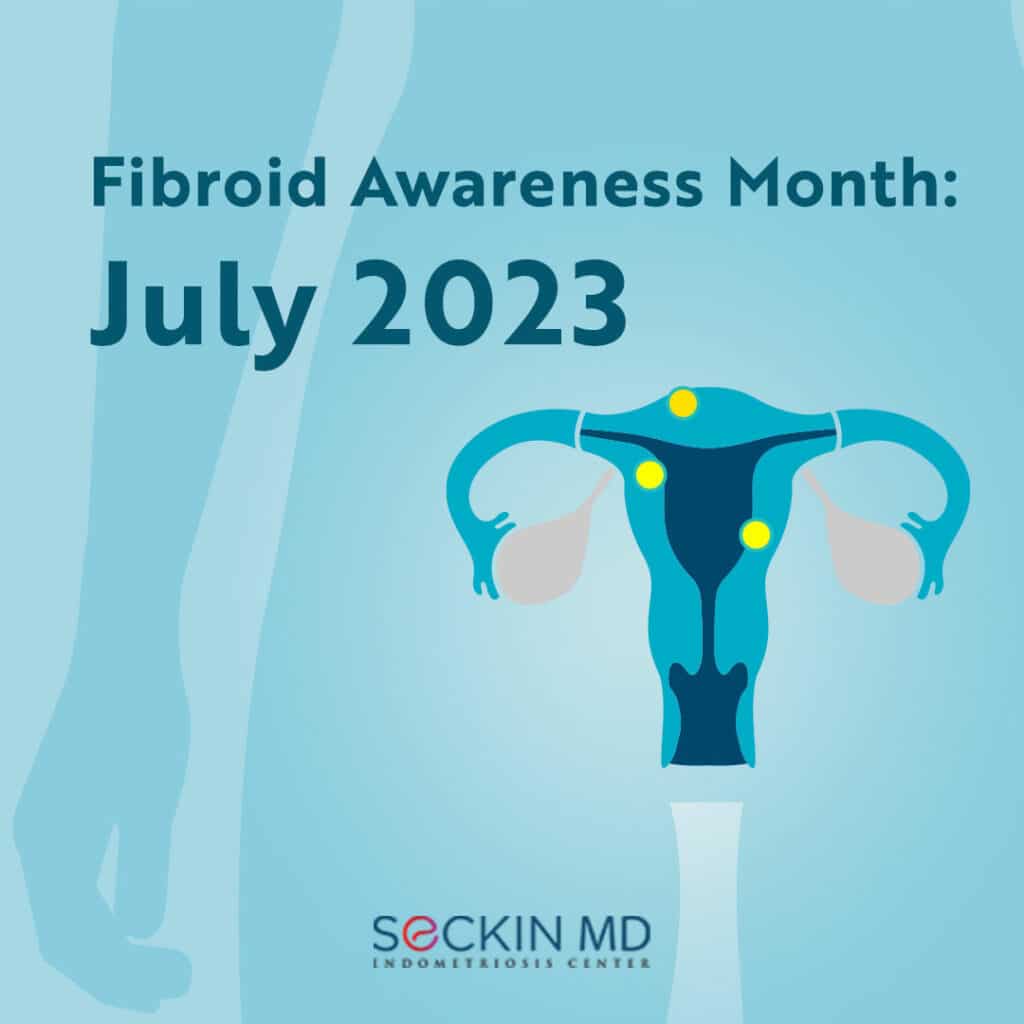Fibroid Awareness Month: July 2023

Uterine fibroids can affect nearly 80% of women by the time they reach menopause. However, it remains an often under-discussed health issue. Raising awareness about fibroids is key to reducing symptoms and ensuring that the disease does not hinder women’s personal and professional lives. July is fibroid awareness month.
Understanding uterine fibroids
Uterine fibroids, also known as fibromas, myomas, or uterine leiomyomas, are non-cancerous tumor growths, most commonly found in the uterine wall. These can range from the size of a bean to that of a melon, making the uterus as large as a pregnant one. Woman may develop one fibroid or multiple fibroids.
Not all women who have fibroids experience symptoms, depending on the size and location. Symptoms, if present, include heavy menstrual bleeding, painful intercourse, pelvic pain, and difficulty with urination.
The diagnosis usually involves imaging such as ultrasound, magnetic resonance imaging (MRI). Treatment typically involves medication and/or surgery such as hysteroscopy and laparoscopy.
Causes, risk factors, and prevalence
The specific cause of fibroid formation is still not clear. However, factors such as high estrogen and progesterone levels, high body weight, and even genetics may play a role. High body weight results in the conversion of excess fat into estrone (a form of estrogen). This can further contribute to fibroid development.
Women of African-Caribbean descent have a disproportionately high prevalence of fibroids. These women are about nine times more susceptible to developing fibroids.
Studies have shown that nearly 80% of African-American women and 70% of white women, especially those aged between 35 and 54, have uterine fibroids. There are also misconceptions that symptoms are part of the normal menstrual cycle. This leads to long diagnosis times, often as long as four years or more, in nearly 43% of African-American women.
Raising awareness about fibroids
Despite such high prevalence, women with fibroids still do not receive the right care. Often, they undergo life-altering surgeries such as hysterectomies that lead to permanent surgical infertility.
Organizations such as The Fibroid Foundation, The White Dress Project, and the Society for Women’s Health Research (SWHR) are among the prominent nonprofit ones that offer support and advocacy for women with fibroids.
The White Dress Project supports the Stephanie Tubbs Jones Uterine Fibroid Research and Education Act, 2021, which provides $150 million in funding to the National Institutes of Health over five years for fibroid research.
The SWHR has a handy toolkit that offers an overview of uterine fibroids, links to personal stories and Congressional briefings. It also offers methods for advocacy such as information to contact elected officials who can impact legislation and funding for fibroids research.
Participating in ongoing and upcoming clinical trials on fibroids is also a great way to contribute to scientific discovery.
Do you have fibroids? Please share your experience by leaving a comment on our post on Facebook or Instagram if you wish.
Get a Second Opinion
Our endometriosis specialists are dedicated to providing patients with expert care. Whether you have been diagnosed or are looking to find a doctor, they are ready to help.Our office is located on 872 Fifth Avenue New York, NY 10065.
You may call us at (646) 960-3080 or have your case reviewed by clicking here.